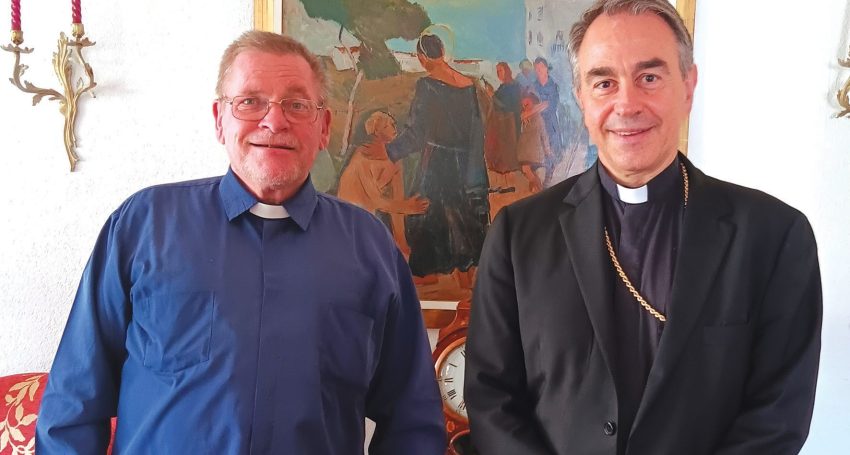Putting Catholic teaching in the global picture
News
Catholic Social Teaching is a valuable resource for our community to speak on political, technical and social issues in our world, writes Fr Roderick O'Brien.

But how to get our message to an international community which might not share our values? One method is for our Church community to be present at high-level discussions between nations which shape our world.
The Holy See is like a micro-state, and has its own participation in world diplomacy. The church officials charged with this task are all clergy, and known as papal nuncios or papal legates. Their offices are called nunciatures.
Advertisement
While New York is an important centre of international relations, there is another major global centre and that is Geneva in Switzerland. Perhaps because of Switzerland’s traditional neutrality and convenience to European powers, many international organisations, both government and non-government, hold their meetings there.
Recently, I took time out from a pilgrimage in Europe to visit the Nuncio in Geneva, Archbishop Ettore Balestrero. The Archbishop works with a small staff to maintain a presence with government meetings and important non-government organisations like the International Committee of the Red Cross. There are many such organisations with which our Catholic community has some common ground and common cause in social issues.
One of the staff of the Nunciature, Dr Stefano Saldi from Italy, has been working with the nunciature for about 10 years. He is very familiar with the way in which organisations founded under international treaties can operate and their many levels of formal meetings, working meetings and informal discussions. Dr Saldi and I both have an interest in applying Catholic Social Teaching in the area of disarmament and control of weapons, especially Lethal Autonomous Weapon Systems (LAWS).
Advertisement
Where possible, the Nunciature regularly contributes to the technical working sessions of international meeting and issues public statements on the Church’s teaching which are then available online.
A feature of the working life of the Nunciature is the annual participation of a small number of interns – young women and men – who are university graduates or post-graduate students and who help with research for the Nuncio. Perhaps there will be South Australians among the future interns? It is a wonderful opportunity for young people who have appropriate qualifications, who are committed in faith to Catholic Social Teaching, and want to contribute at this specialist level.
The Compendium of Social Teaching of the Catholic Church is a valuable basic document for use in this area. But the Compendium is now about 20 years old. New developments such as artificial intelligence, genetic modification and surveillance societies raise new questions. Catholic Social Teaching has to constantly evolve. Of course, the basics of our relationship with God remain constant, but living out that relationship in a rapidly changing society requires faith-filled and intelligent development.
Our Church, through people like Archbishop Balestrero and Dr Saldi, carries out this work for all of us.
Fr Roderick O’Brien retired last year as parish priest of Lefevre Catholic Community.






